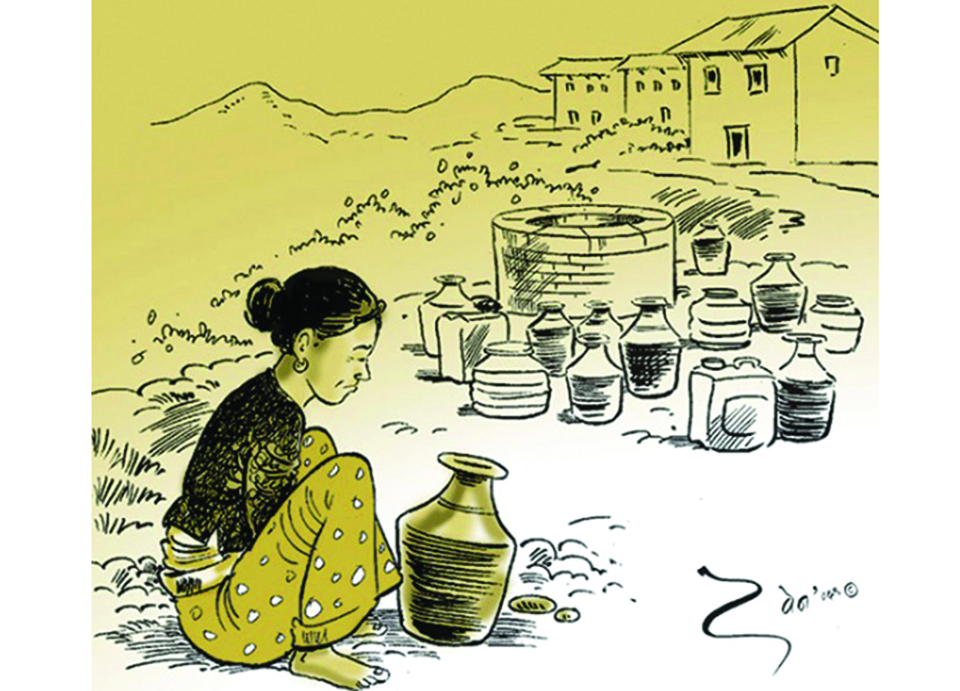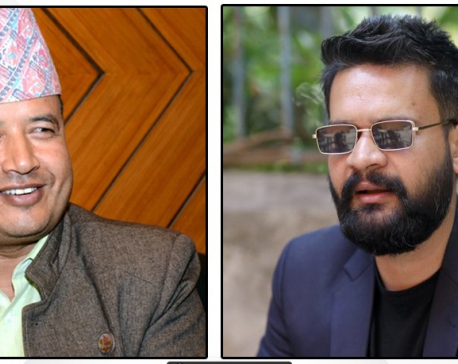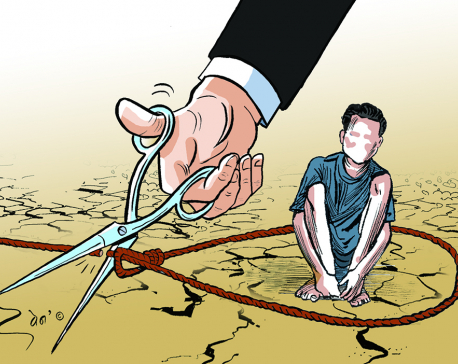
OR

RUPANDEHI, June 5: A week ago, Dalit rights activist Mina Pariyar reached Butwal, the temporary capital of Province 5 and searched for a room on rent. She was looking for a new place for her daughter, a ninth grader at the Laxmi Secondary School of Butwal. After taking the help of her friends, she finally found a room at a house whose owner's surname was Khatri.
We won equality at the political level but winning it at the cultural level and rooting out caste-based discrimination from the society seems to be challenging.
She loaded her bags and other materials and reached Laxminagar of Butwal from Shivaraj of Kapilvastu. After reaching the new location, she could not believe that the landlord who had earlier agreed to allow the room refused to do so after learning that she was a Dalit. One of the Dalit women in the locality who witnessed the incident immediately reported the incident to the police.
Sadly, the police did not take the complaint seriously. Just a day before, the landlord had repeatedly called Mina and inquired when should be shifting. The next day, he declined to let her in. Disappointed Mina kept searching for another room and finally found one in Jyotinagar just three days ago.
"When activists like us are forced to deal with such discrimination, what must be the situation of Dalit's who can't raise their voice?' questioned Mina.
Until two years ago, the Dalit community of Tansen were attracted towards raising buffaloes. They produced 20 to 25 litres of milk daily. However, nobody expressed a willingness to buy this milk. They could sell the milk in the market. Even co-operatives refused to buy milk from them. Following which Dalit members led by Prem Shahi Samundri staged a protest. That compelled the co-operative to buy the milk produced by the Dalit community. Under pressure, co-operative started purchasing milk from them, segregated the milk containers from other containers.
Unable to bear the discrimination, most Dalits gave up animal husbandry. "We gave up animal husbandry as the members of the society did not buy milk from us," said a local Prem Shahi Samundri.
On April 18, 22 non-Dalits guests invited to a wedding of a Dalit family in Suddhodhan Rural Municipality participated in the ceremony but jointly boycotted the feast. Sating that the incident was an insult for him, Ram Bahadur Bishwokarma, father of the bride, returned the money provided by those non-Dalit guests to the bride.
As the incident sparked controversy, a local unit organized a joint feast May 5 for both Dalit and non-Dalit members of the society. The issue was finally reconciled after the non-Dalit members who boycotted the feast promised not to repeat such activities in the future. However, their promises were limited to words as the lower caste people still complain of being ostracized and ill-treated for their caste.
These are just a few typical cases of caste-based discrimination and, which is still widely prevalent in different parts of the country. Even in this modern era, a large number of people are victimized and deprived of their rights for being a Dalit.
Government has already criminalized untouchability and caste-based discrimination, but that has not abolished this social evil. Series of awareness campaigns and policies introduced by the government has reduced bias to some extent, but it is still prevalent, especially in rural areas.
"Changing government and leadership has failed to bring the change in perspective of people towards Dalits and underprivileged community," said activist Mina Pariyar, adding, and "Repeated incidents of discrimination faced by Dalits is a proof of that." According to her, even the so-called educated and civilized people still encourage discrimination and untouchability.
Such discrimination is prevalent even in modern cities such as Butwal. Not even local representatives have been spared of such discrimination. Some of the Dalit representatives complain that they are often excluded from worshipping and auspicious ceremonies.
"We have been subjected to discrimination indirectly," said former lawmaker Binod Pahari. According to him, even the incumbent communist government has failed to address the problems of Dalits. "Those in authority must speak for the rights of Dalits, but that rarely happens," said Pahari, adding, "It is a matter of shame that even in this modern era people are discriminated and suppressed based on their caste."
Kamaladevi Bishwakarma, a lawmaker of Province 5, blames superstitions based on Hindu religion for untouchability. She stressed on the need of changing mentality to end ill practices and norms. She argues that the Dalit community must also start raising their voice against the torture and violence they suffer from being Dalits.
Despite the formulation of laws and policies against untouchability, the government itself has not been able to take action against those practising and promoting it. "We won equality at the political level but winning it at the cultural level and rooting out caste-based discrimination from the society seems to be challenging," Bishwakarma added.
You May Like This

UML leader Basnet to Balen: Don't be pampered just because you have a few hundred fans on Facebook
KATHMANDU, August 26: While the Mayor of Kathmandu Metropolitan City (KMC), Balendra Shah, is speeding up the work to demolish... Read More...

Smugglers’ go-downs near customs office
SIRAHA, March 16: On March 10, a team from the District Police Office (DPO), Siraha, arrested a truck with an... Read More...

Justice deferred for Dalits
Many reports have pointed out that the police hardly register the cases of crimes of caste-based discrimination and rarely carry... Read More...




Just In
- Nepal-Qatar Relations: Prioritize promoting interests of Nepali migrant workers
- Health ministry to conduct ‘search and vaccinate’ campaign on May 13
- Indian customs releases trucks carrying Nepali tea, halted across Kakarbhitta
- Silent period for by-election to begin from midnight
- SC issues short-term interim order to govt and TU not to take immediate action against TU legal advisor Khanal
- National consultation workshop advocates to scale up nutrition smart community in Nepal
- Patan High Court issues short-term interim order to halt selection process of NTB’s CEO
- NEPSE inches up 0.15 points; daily turnover increases to Rs 2.53 billion













Leave A Comment